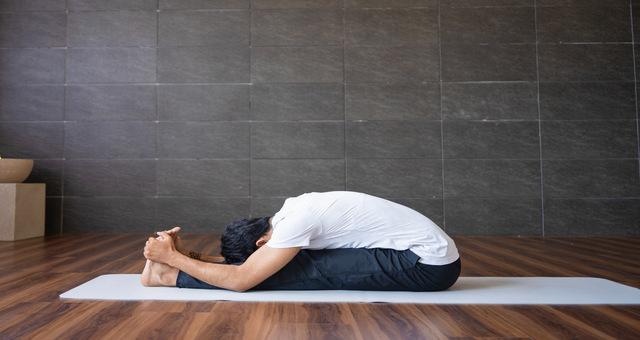How to Overcome Common Challenges in a Regular Yoga Practice

Yoga is a transformative practice that offers numerous physical, mental, and emotional benefits. However, like any other pursuit, a regular yoga practice comes with its fair share of challenges. These obstacles can sometimes deter individuals from maintaining a consistent practice. In this blog, we will explore some common challenges faced by yoga practitioners and provide practical strategies to overcome them, ensuring that you can reap the full rewards of a regular yoga routine.
1. Time Constraints
One of the most prevalent challenges to maintaining a regular yoga practice is finding time in a busy schedule. Juggling work, family, and other commitments can leave little room for self-care. Overcoming this challenge requires a shift in perspective and a commitment to prioritizing your well-being.
– Create a Schedule: Allocate specific time slots for your yoga practice in your daily or weekly schedule. Treat these slots as non-negotiable appointments with yourself.
– Start Small: If time is scarce, begin with short yoga sessions, even just 10-15 minutes per day. Consistency is more important than the duration of each practice.
– Incorporate Yoga into Daily Activities: Find ways to integrate yoga into your day, such as doing simple stretches while waiting for your morning coffee to brew or practicing deep breathing during breaks at work.
2. Physical Limitations
Physical limitations and health concerns can hinder a yoga practice. It’s essential to approach yoga with compassion and listen to your body’s needs, making modifications when necessary.
– Consult with a Healthcare Professional: If you have specific health concerns or physical limitations, consult with a healthcare professional or a certified yoga instructor before starting your practice. They can guide modifications and suitable yoga styles.
– Explore Adaptive Yoga: There are various adaptive yoga styles designed to accommodate individuals with physical limitations. Look for classes tailored to your needs, such as chair yoga or gentle yoga.
– Be Patient and Kind: Accept that your body might have limitations, and that’s perfectly okay. Avoid comparing yourself to others and practice self-compassion during your yoga journey.
3. Lack of Motivation
Staying motivated to practice regularly can be challenging, especially during periods of low energy or stress. Finding inspiration and staying committed to your yoga practice requires some intentional effort.
– Set Goals: Define clear and achievable goals for your yoga practice. Whether it’s improving flexibility, reducing stress, or mastering a specific pose, having goals can keep you motivated.
– Join a Yoga Community: Practicing yoga in a group setting can be highly motivating. Join a local yoga studio or online community to connect with like-minded individuals and gain support from fellow practitioners.
– Vary Your Practice: Avoid falling into a routine by exploring different styles of yoga or trying new poses. Keeping your practice fresh and engaging can rekindle your enthusiasm.
Related Post – How to Choose the Right Yoga Teacher or Studio for a Fulfilling Experience
4. Mental Restlessness
Calming the mind and quieting mental chatter is one of the fundamental aspects of yoga. However, for many, achieving mental stillness can be a constant struggle.
– Incorporate Breathwork: Pranayama, or breath control exercises, can be immensely helpful in calming the mind. Focus on deep, mindful breathing during your practice to anchor your awareness to the present moment.
– Practice Meditation: Regular meditation can train the mind to become more still and focused. Set aside a few minutes each day to meditate, even if it starts with just a short period of quiet contemplation.
– Let Go of Expectations: Acknowledge that thoughts will arise during your practice, and that’s entirely normal. Instead of trying to suppress them, practice observing them non-judgmentally and gently bringing your attention back to your breath or the present moment.
5. Distractions and Environment
Creating a serene environment for yoga practice can be challenging, especially in a busy household or a noisy neighborhood. However, with some adjustments, you can find a suitable space and minimize distractions.
– Set Up a Sacred Space: Designate a corner or room in your home as your yoga space. Personalize it with calming elements like plants, candles, or inspiring quotes to create a sense of sacredness.
– Choose the Right Time: Find a time of day when distractions are minimal. Early mornings or late evenings are often quieter and more conducive to a focused practice.
– Use Headphones: If noise from outside the home disrupts your practice, consider using noise-canceling headphones with calming music or guided meditation.
Also Read : How to Practice Yoga for Better Sleep and Insomnia Relief
Conclusion
A regular yoga practice can bring profound benefits to your overall well-being, but it’s not always smooth sailing. Recognizing and overcoming common challenges in your yoga journey is essential to maintaining consistency and reaping the rewards of this ancient practice. By prioritizing your time, being compassionate with your body, staying motivated, calming the mind, and creating a conducive environment, you can navigate these obstacles and discover the transformative power of yoga in your life. Remember that yoga is a personal journey, and progress comes with patience, persistence, and a willingness to embrace the process.




